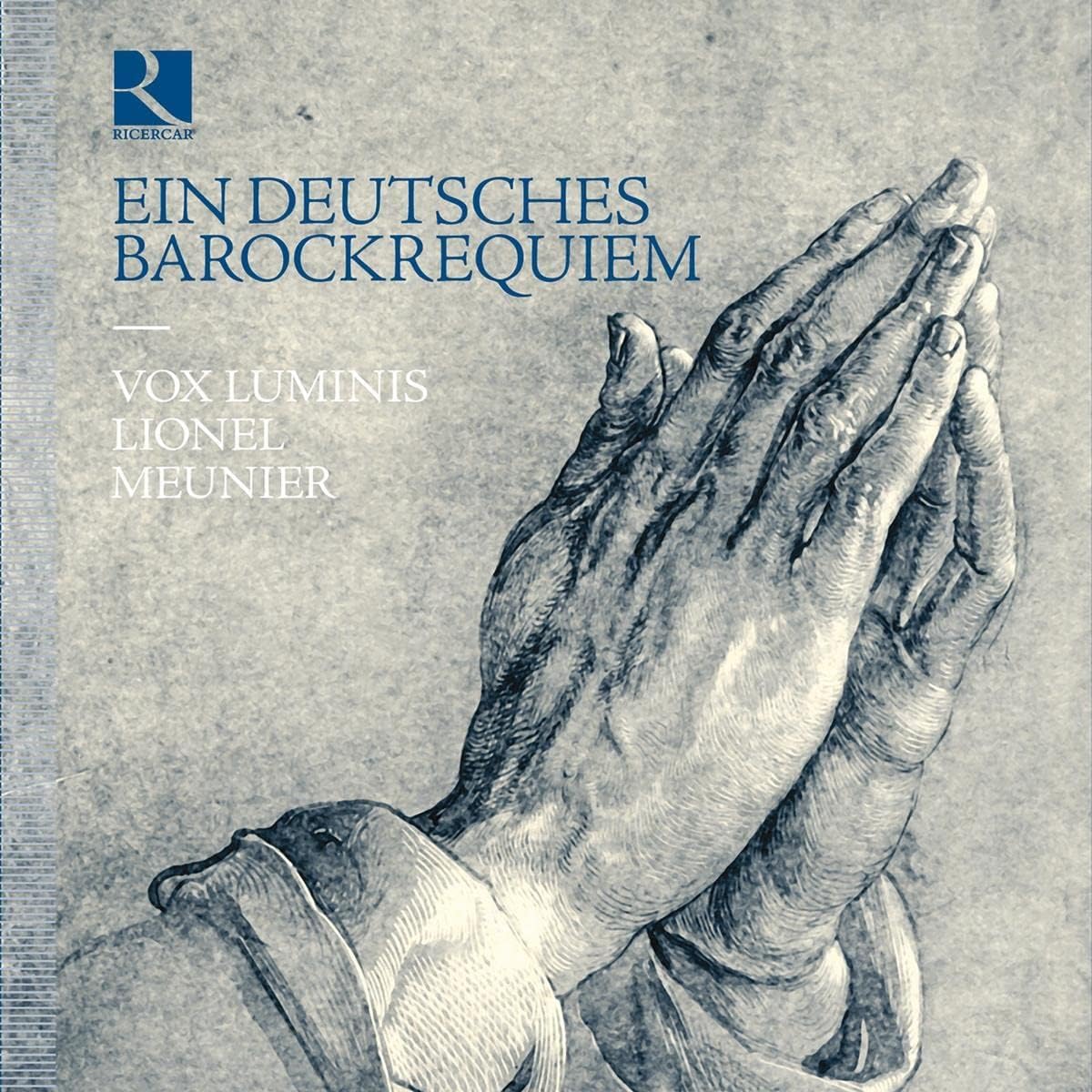Vox Luminis, Lionel Meunier
78:58
Ricercar RIC445
This characteristic CD from Vox Luminis is the result of a reflection on the tradition of providing a set of scriptural settings of passages that might be suitable to provide music for a funeral, as was the case in Johannes Brahms’ Ein Deutsches Requiem.
Lionel Meunier and Vox Luminis had recorded Schütz’s Musicalische Exequiem in 2010 – and it was one of the recordings which helped make their name. Here they have done something different. They have searched out texts that are either similar to or the same as those used by Brahms around two hundred years later, and the result is a well-constructed series of motets and Psalm settings from 17th-century German composers, some of which I knew, but many of whom I had never heard before. While some of them are for voices and continuo, in combinations for two equal cori, others are coloured by a five-part string ensemble with continuo, and one – by Christian Geist – voices with two tenor and one bass viol with continuo.
As might be expected, this scoring provides a sombre overall feel to the disc, which is the perfect vehicle for the clear sonorities of Vox Luminis. The attention to each other’s vocal lines, and their expert tuning in the clean temperament provided by the fine organ by Dominique Thomas in the north transept of the Église Notre-Dame de la Nativité at Gedinne in Belgium make it difficult to imagine a better performance. Singers and organ, with instrumental colouring at times, is the foundational sound with which Bach and his musical forebears grew up. And this CD is important in locking this sound into our minds as we get used to hearing just the same kind of sounds in J. S. Bach’s pre-Leipzig cantatas.
Many people record their favourite Bach, but in spite of using period instruments, not many use the right kind of organ with a substantial sound in the hands of an expert like Bart Jacobs. And few have adult singers that can set aside their modern vocal techniques and sing together like the boys from the German Lutheran boys’ choirs still do.
So this is another CD to savour, and to marvel at the similarities and the differences in the choice of texts and the manner of setting them that this admirable recording does in these works by Scharmann, Selle, Schein, Geist, Tobias Michael, Briegel, Hammerschmidt, Schwemmer and Förtsch. A CD to treasure for many reasons, but especially for the outstanding sense of group ownership.
David Stancliffe
